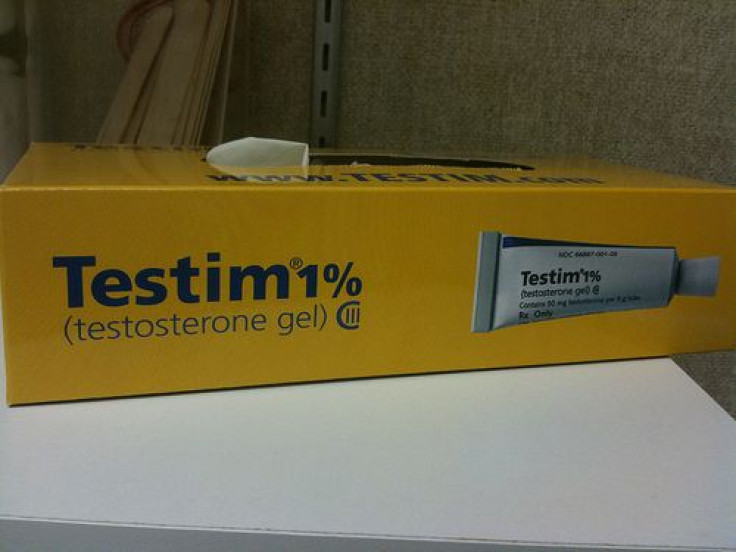Testosterone Replacement Therapy Tied To Increased Heart Attack Risk, As Hormone May Clot Men’s Blood

Men who wish to increase their strength or libido frequently turn to testosterone supplements, administered through topical creams or gels. But new research suggests the hormone replacement therapy may increase men’s risk for heart attack, in both men over and under the age of 65, the study reports.
Published in the journal PLoS One, the study comes on the heels of growing bodies of research into hormone replacement therapies for men with so-called “low T” levels. Though the specific mechanism by which heart attack risk increases is unclear, experts are confident the therapy poses serious health risks across a broad range of ages, specifically in men over 65 without a history of heart disease and men under 65 with a history of the disease. After 90 days of beginning the therapy, both groups saw their risk for heart attack double.
The team of experimenters from UCLA sought to better understand heart attack risk in patients younger than 65, as this group has received far less clinical attention than the cohort over 65, according to study author and epidemiologist William Finkle. "We identified the [timing of the] first prescription and followed them for 90 days," Finkle told HealthDay. Heart attack risks doubled by the end of the trial, then fell back to normal levels 90 days after the men stopped refilling their prescriptions.
Finkle and his colleagues looked at the health care records of 55,593 men who had been prescribed testosterone therapy — 48,539 younger than 65 and 7,054 65 and older. Admittedly, this introduces some element of uncertainty into the study, as medical records only indicate a prescription was filled, not that the men stuck to their doctors’ orders. "This is important since compliance can be poor, especially with topical formulations," Dr. Ryan Terlecki, director of the Men's Health Clinic at the Wake Forest Baptist Medical Center, told HealthDay. And since the research team didn’t have access to why each prescription was filled, they can’t know if it was even for low T, Terlicki added.
But Finkle seemed cognizant of these concerns, stating that patients should feel empowered to ask their doctors about heart attack risks before they start treatment. Likewise, doctors should consider alternative diagnoses if patients request testosterone supplements, as feelings of fatigue and depression may stem from a different root cause altogether, such as thyroid disease or B12 deficiency.
Testosterone replacement therapy ultimately seeks to normalize low levels of the hormone in a man’s body. Much of the research has approached the therapy’s risk from a point of view of thin blood vessels, a trait commonly found in the elderly, which suggests any additional clotting may result from the vessels’ already narrowed shape. Still, the element of low T’s pop culture appeal has some experts concerned for the younger generations who consider the therapy an express route to increased libido, rather than a as a source of energy.
"Once it appears on television, with seductive ads that make men think it's a fountain of youth, you're going to see a lot of off-label usage,” argued Dr. Steve Nissen, a cardiologist at the Cleveland Clinic, to CBS News. Over the last decade, prescriptions for testosterone have more than tripled, according to a study conducted last year. In fact, prescriptions for testosterone replacement have now exceeded those for the popular erectile dysfunction drug, Viagra.
Heart attack risk is not currently listed on warning labels for the supplement, according to the FDA; though the agency is reportedly considering the addition in light of the new study.
Source: Finkle W, Greenland S, Ridgeway G. Increased Risk of Non-Fatal Myocardial Infarction Following Testosterone Therapy Prescription in Men. PLoS One. 2014.



























